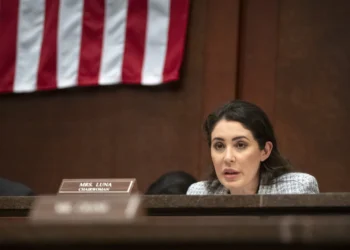In an Atlantic piece, psychologist Jean Twenge asked a serious question: “Why are the kids all right-wing?” She argued that the perceived Generation Z “red wave” that characterized President Donald Trump‘s rise to the White House was merely temporary. Nevertheless, Twenge interviewed data analyst David Shor, who sounded the alarm: “Young people have gone from being the most progressive generation since the baby boomers … to becoming potentially the most conservative generation that we’ve experienced maybe in 50 or 60 years.”
Maybe that says more about the last decade than about Gen Z.
After a political era defined by geriatric gridlock, pandemic isolation, and ideological polarization, who can blame Zoomers for looking to something more solid? A small-c conservative turn is a logical reaction to weather the storm.
The same liberal pundits now seem shocked that young people, after years of chaotic governance, collapsing institutions, and digital overstimulation, might long for order, identity, and community. But perhaps it’s they who live in a bubble, unaware of the one they helped inflate.
Matthew Yglesias recently posted, “We need a bipartisan initiative to get people to leave the house.”
He’s not wrong. In 2019, 67% of Americans had a so-called third space — places such as churches, community centers, or bowling leagues. Today, that number is 54% and falling. Add smartphones, social atomization, and chronically online subcultures, and you get a generation more alienated than any in modern history.
This is nothing new. Robert Putnam’s Bowling Alone documented the steady withdrawal from civil society decades ago. But Gen Z is the first generation to grow up almost entirely within the ruins.
The result? A kind of digital Sturm und Drang: inward, self-critical, and jaded — especially among young men. Teenagers and young adults build sprawling inner worlds but lack tangible communities. As Jessica Grose of the New York Times noted, “Gen Z-ers are more trusting of their peers and what they can see and build themselves.” They crave authenticity — but find only abstraction.
So when the choice in 2024 came down to the bureaucratic blandness of former Vice President Kamala Harris’s progressivism or Trump’s blunt, populist appeals, Gen Z went with the latter, not because they’re all ready for a theocracy but because they’re desperate for something that feels rooted in reality.
Zoomers, in fact, aren’t interested in owning the libs so much as they’re interested in owning something, anything — a house, a belief, or a sense of belonging.
They long for something from which to plant roots.
Imagine: You’re in your early 20s. You’ve been told you’ll own nothing, condone everything, and like it. Your adolescence was a blur of virtual school and political dysfunction. You’re marooned in suburbia with no skills, no mentors, and no rituals. Why wouldn’t one turn to tradition and venerate the enduring?
Thomas Jefferson believed that a healthy democracy depended on spiritually and physically competent citizens. In an era of hypercapitalism, sterile institutions, and moral confusion, Gen Z is simply trying to become that again — spiritually and physically capable, grounded.
GENERATION Z’S AHISTORICAL ANXIETIES
Now, this isn’t the dawn of some red-tinted theocracy. But it’s not a blip either. It’s a sustained cultural pushback. And if liberal elites continue to treat it as a psychological defect or an algorithmic error, the backlash may only deepen and widen.
Gen Z isn’t broken, not in the slightest. They’re simply rationally responding to a broken world, hoping for grace and community. Can anyone really blame them?















